THE PROSPERITY CULT AND OTHER IDOLATRIES IN THE OLD TESTAMENT.
MORAL RELATIVISM IN THE PERIOD OF THE JUDGES.
THE NICODEMUS INTERVIEW: THE NEW BIRTH
MAY 3 Judges 17-18:31; John 3:1-21; Psalm 104:1-23; Proverbs 14:20-21
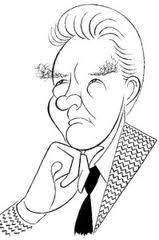 “In those days there was no king in Israel; every man did what was right in his own eyes.” (Judges 17:6; 21:25)
“In those days there was no king in Israel; every man did what was right in his own eyes.” (Judges 17:6; 21:25)
Historian and biographer Paul Johnson, author of “Modern Times,” noted in an interview the disturbing similarities between the period of the Judges in which “every man did what was right in his own eyes” and the moral relativism of today.
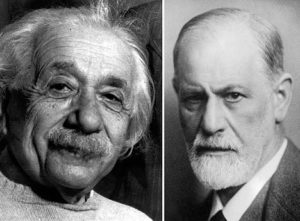 He observes that after World War I, streams of thought converged that unduly advanced the concept of moral relativism. Einstein’s theory of relativity in the physical sciences was hijacked by philosophers as if it gave credence to the relativity of all moral values, a supposition to which Einstein, who believed in the existence of moral absolutes, would have objected. Freudian psychology suggested that guilt could be done away with by the removal of any ‘taboo consciousness’ underpinned by an absolute moral framework. On the political front, in 1917, Lenin advocated a ‘revolutionary conscience’ that would replace the ‘Judeo-Christian conscience’ based on moral absolutes. The ‘revolutionary conscience’ could be changed based on the needs of the political party.
He observes that after World War I, streams of thought converged that unduly advanced the concept of moral relativism. Einstein’s theory of relativity in the physical sciences was hijacked by philosophers as if it gave credence to the relativity of all moral values, a supposition to which Einstein, who believed in the existence of moral absolutes, would have objected. Freudian psychology suggested that guilt could be done away with by the removal of any ‘taboo consciousness’ underpinned by an absolute moral framework. On the political front, in 1917, Lenin advocated a ‘revolutionary conscience’ that would replace the ‘Judeo-Christian conscience’ based on moral absolutes. The ‘revolutionary conscience’ could be changed based on the needs of the political party.
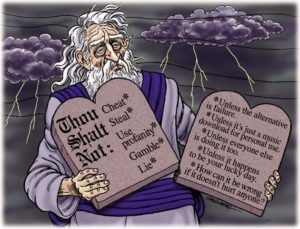 We see a similar trend in the Book of Judges as the children of Israel abandon the revelation of God’s holy character given in the law of Moses and forsake their calling to be a people who are in a covenant relationship with the Eternal King.
We see a similar trend in the Book of Judges as the children of Israel abandon the revelation of God’s holy character given in the law of Moses and forsake their calling to be a people who are in a covenant relationship with the Eternal King.
In Chapter 17, we see how a man named Micah set up his own household religion in which he could freely worship his personal idols of choice, employ his own priest as a coach and therapist, to mediate a blessing of personal peace and prosperity in his life.
 The story begins with a revelation of Micah’s character. He has stolen 1100 pieces of silver from his mother. When he hears his mother speaking a curse on the one who has stolen her money, Micah decides to avoid the curse and return the money. His mother is grateful that he admitted his crime against her and vows to wholly dedicate the silver to the LORD and yet asks her son to violate the Law of the LORD and make a carved image and a molten image and to take them into his household.
The story begins with a revelation of Micah’s character. He has stolen 1100 pieces of silver from his mother. When he hears his mother speaking a curse on the one who has stolen her money, Micah decides to avoid the curse and return the money. His mother is grateful that he admitted his crime against her and vows to wholly dedicate the silver to the LORD and yet asks her son to violate the Law of the LORD and make a carved image and a molten image and to take them into his household.
She gives 200 pieces of the returned silver to a silversmith to have a carved image made and a silver idol cast in honor of her son. Micah makes a shrine in his home, constructs his own sacred ephod, and then consecrates one of his sons to be his own personal priest. He builds his own personal SELF-STYLED SPIRITUALITY where he can do what was right in his own eyes.
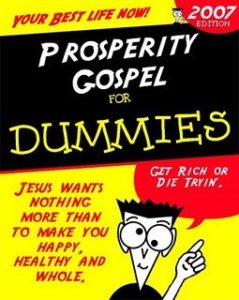 In the temple of Micah, there was no law, no rod that budded, no manna, no ark of the covenant, no sacrifice for sin, and no priesthood. But Micah had what he wanted. He had his god where he wanted and when he wanted. He had his personal religion, with a god who was easily accessible, made in his own image, who demanded no sacrifices, made no demands for personal holiness, and to whom he could easily relate.
In the temple of Micah, there was no law, no rod that budded, no manna, no ark of the covenant, no sacrifice for sin, and no priesthood. But Micah had what he wanted. He had his god where he wanted and when he wanted. He had his personal religion, with a god who was easily accessible, made in his own image, who demanded no sacrifices, made no demands for personal holiness, and to whom he could easily relate.
Eventually, a Levite from Bethlehem Judah, a real professional priest having the right pedigree, came to the hill country of Ephraim and to Micah’s house. Micah invited him into the house and hired him as his own personal ‘stay at home’ priest. Micah was pleased to have someone recognized as a sanctioned religious professional from the tribe of Levi to give his ‘prosperity gospel’ greater legitimacy in the eyes of others. Now that Micah had God on his side, with his own personal shrine and his own personal priest, he had his own customized religion.
Then Micah said, “Now I know that the Lord will prosper me, seeing I have a Levite as priest.”(Judges 17:13)
WARRIORS THAT LEFT THEIR ASSIGNMENTS IN THE REAL WAR TO FIGHT AN UNSANCTIONED WAR AGAINST THE WRONG ENEMY
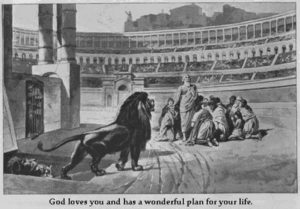 Five warriors from the tribe of Dan went on a scouting mission to find a better place to settle than the one that the LORD had assigned to them. They were discontent with their lot because it would require trusting God to give them the strength to drive out the enemy and possess their inheritance. Rather than seeking to fulfill God’s will and take the responsibility to claim what God had promised them, they sought a more convenient place where they could claim their own vision of their desired destiny and live their dream.
Five warriors from the tribe of Dan went on a scouting mission to find a better place to settle than the one that the LORD had assigned to them. They were discontent with their lot because it would require trusting God to give them the strength to drive out the enemy and possess their inheritance. Rather than seeking to fulfill God’s will and take the responsibility to claim what God had promised them, they sought a more convenient place where they could claim their own vision of their desired destiny and live their dream.
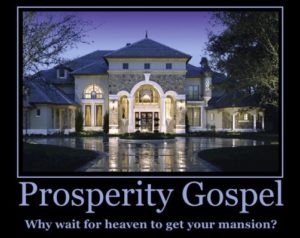 They observed people living “carefree lives” “like the Sidonians” in the town of Laish. Although the men of Laish did not have any observable relationship to the One True God, they appeared to be “peaceful,” “secure,” and “wealthy” (18:7). They wanted that for themselves.
They observed people living “carefree lives” “like the Sidonians” in the town of Laish. Although the men of Laish did not have any observable relationship to the One True God, they appeared to be “peaceful,” “secure,” and “wealthy” (18:7). They wanted that for themselves.
When these warriors arrived in the hill country of Ephraim, they came to Micah’s house and recognized the voice (and most likely the accent) of the Levite. They are curious to find out how he, a Levite, who had been assigned either service in the Tabernacle or in one of the 48 cities, became a professional minister in the household of Micah. The priest explains that Micah had hired him to serve his idol and wear his customized ephod (most likely without the 12 stones for the tribes of Israel upon it) and how he made his services available to Micah that he might have a blessing (Judges 18:6). He had become Micah’s personal prosperity coach.
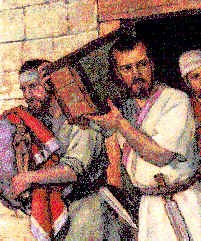 With 600 warriors standing just outside the gate, the five warriors from Dan go to Micah’s house and steal the carved image, the household idols, the sacred ephod, and the cast idol (18:17).
With 600 warriors standing just outside the gate, the five warriors from Dan go to Micah’s house and steal the carved image, the household idols, the sacred ephod, and the cast idol (18:17).
When Micah’s hired priest sees this, he asks what they are doing.
As they explain their vision, they offer to hire him as THEIR prosperity priest.
They said to him, “Be silent, put your hand over your mouth and come with us, and be to us a father and a priest. Is it better for you to be a priest to the house of one man or to be priest to a tribe and a family in Israel?” (Judges 18:19)
Micah’s hired priest is happy to accept this promotion, so he leaves his former ministry in the temple of Micah and joins the men from Dan and all their stolen goods.
Of course, Micah and some of his neighbors are furious that someone has taken their idols and prosperity priest away. Without them, Micah says, “I have nothing left.” (18:24)
The Danites warn Micah to watch what he says, or they will kill him (Judges 18:25).
It is clear that there is no moral base to these thieving, murderous idol worshipers. Micah returns home, where he must rebuild his personal religion.
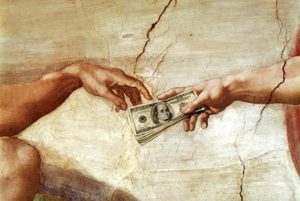 The tribe of Dan move to Laish, where they can live their dream without the one true God. They attack and kill all the inhabitants and burn Laish to the ground. There was no one to rescue the residents of the town. They rename the town “Dan” after themselves, or should we say their ancestor, Dan, the son of Jacob.
The tribe of Dan move to Laish, where they can live their dream without the one true God. They attack and kill all the inhabitants and burn Laish to the ground. There was no one to rescue the residents of the town. They rename the town “Dan” after themselves, or should we say their ancestor, Dan, the son of Jacob.
They set up their idols and appoint Jonathan, a descendant of Moses through his son, Gershom, to be their priest. The last verse is quite sad:
“So they set up for themselves Micah’s graven image which he had made, all the time that the house of God was at Shiloh.”
The prosperity cult of Micah has now spread and become a counterfeit religion in Israel.
NEW TESTAMENT READING: JOHN 3:1-21
JESUS’ INTERVIEW WITH NICODEMUS
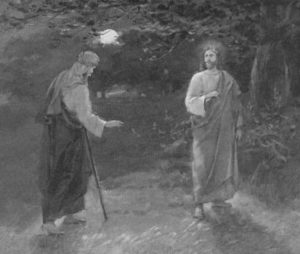 Nicodemus was reputedly one of the wealthiest men in Jerusalem and a highly esteemed teacher of the law. As a Pharisee, he had studied the Law but was very intrigued by how Jesus made it come alive. He recognized the hand of God upon Jesus’ life and ministry.
Nicodemus was reputedly one of the wealthiest men in Jerusalem and a highly esteemed teacher of the law. As a Pharisee, he had studied the Law but was very intrigued by how Jesus made it come alive. He recognized the hand of God upon Jesus’ life and ministry.
We read of Nicodemus in three separate incidents in the gospel (John 3; John 7:45-51 and John 19:39-42). This is the first. Nicodemus comes to have a private interview with Jesus at night. It is unannounced, unpublicized, and the result of stirrings within Nicodemus to gain a deeper knowledge of the kingdom.
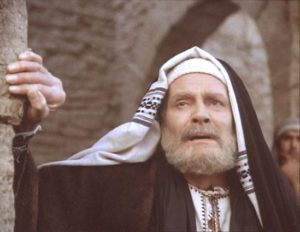 Nicodemus credits Jesus as being a genuine teacher sent from God, although Jesus was not educated or ordained by the religious establishment. He wants to know how he can have the same quality of understanding and experience of God that Jesus has.
Nicodemus credits Jesus as being a genuine teacher sent from God, although Jesus was not educated or ordained by the religious establishment. He wants to know how he can have the same quality of understanding and experience of God that Jesus has.
Jesus replies by saying,
“Truly, truly, I say to you, unless one is born again he cannot see the kingdom of God” (John 3:3).
Jesus makes it clear that you cannot come into this understanding or experience through any religious discipline, acts of piety, good deeds, or accumulation of religious knowledge. The new birth is a God-given “happening” in which we come alive to God with the life of God by the power of the Holy Spirit of God. It is a miracle that cannot be humanly induced.
Someone asked John Wesley why he continually preached, “You must be born again.”? His reply, “Because you must be born again!”
You hear critics say that Jesus only mentioned being born again in this one instance, and it was in a private conversation; therefore, it is not an essential component to the gospel. On the contrary, the experience of regeneration, personal conversion, or being born-again by the Holy Spirit is found throughout the New Testament. (John 1:13; 1:3-8; Ephesians 2:4-5; Colossians 2:13; Titus 3:5; James 1:18; 1 Peter 1:3; 1 Peter 1:23; 1 John 2:29; 3:9; 4:7; 1 John 5:1,4,18).
How is one born again?
Jesus referred Nicodemus to an Old Testament story with which he would have been well acquainted in Numbers 21. It prefigured the gospel message that, when believed, gives rise to the new birth ‘happening.’ The new birth is more than a healing from a fatal disease; it is a bringing a person dead in their sins to a new life, a deathless life, in Christ.
ADMIT THE PROBLEM. YOU HAVE SINNED AGAINST GOD.
Jesus tells Nicodemus about the time when all the Israelites in the wilderness were smitten with the poisonous venom of serpent bites. It was a real problem. It mirrors the dilemma of the human race. It is a picture of all of us being smitten with the fatal disease of sin introduced to Adam’s race by the serpent’s lie, which humanity continues to feed upon- that we can be our own gods without God. We all have violated God’s law. “For all have sinned and fall short of the glory of God.” (Romans 3:23)
RECOGNIZE YOU CANNOT SAVE YOURSELF
No doctor could save those who were perishing because the doctors were also infected victims. The only cure for the Israelites perishing in the wilderness with this disease was for Moses to believe God’s Word and make a representative, a substitute, in brass (which speaks symbolically of judgment), in the likeness of a serpent and lift it up on a pole. This speaks of recognizing the need for Someone to stand in our place and take the curse that fell upon the children of the serpent’s lie.
BELIEVE ON JESUS, GOD’S SON AND YOUR SUBSTITUTE.
Jesus lived the life that we should have lived (without sin). He died the death that we should have died (He died for our sin). He rose from the dead to offer us the forgiveness we don’t deserve and the eternal life He deserves and offers it to us as a free gift (Romans 6:23).
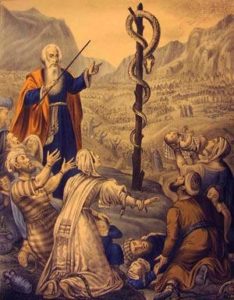 All who look to the serpent in faith were healed. (Numbers 21:6-9)
All who look to the serpent in faith were healed. (Numbers 21:6-9)
Jesus explained to Nicodemus,
“As Moses lifted up the serpent in the wilderness, even so must the Son of Man be lifted up; [15] so that whoever believes in Him will have eternal life. [16] “For God so loved the world, that He gave His only begotten Son, that whoever believes in Him shall not perish, but have eternal life.”
We are saved by looking to Jesus in humble trust, owning Him as our Lord and Savior. We see Him as God’s answer to our need. We are all afflicted with the serpent’s bite, which has brought us the sentence of death. We see Jesus, God’s Son, lifted up on our behalf, made to be our representative, in the likeness of sin.
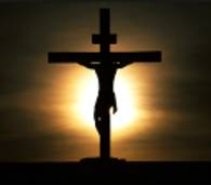 TRUST HIM AS YOUR WRATH BEARER AND WRATH REMOVER
TRUST HIM AS YOUR WRATH BEARER AND WRATH REMOVER
John 3:17-18 (NASB) 17 “For God did not send the Son into the world to judge the world, but that the world might be saved through Him. 18 “He who believes in Him is not judged; he who does not believe has been judged already, because he has not believed in the name of the only begotten Son of God.
Jesus repeats the command- “BELIEVE”
You have been given the light of the knowledge of God in Jesus Christ, the Light of the World, now come to the Light.
TURN FROM YOUR SIN (DARKNESS) AND OBEY THE GOSPEL BY SURRENDERING YOUR LIFE TO THE LORDSHIP OF CHRIST.
John 3:19-21 (NASB) 19 “This is the judgment, that the Light has come into the world, and men loved the darkness rather than the Light, for their deeds were evil. 20 “For everyone who does evil hates the Light, and does not come to the Light for fear that his deeds will be exposed. 21 “But he who practices the truth comes to the Light, so that his deeds may be manifested as having been wrought in God.”
PSALM FOR TODAY
READ PSALM 104:1-23
You will have noticed that this Psalm begins with the same exclamation as Psalm 103 which we read yesterday- “Bless the Lord, O My Soul!”
Tomorrow we will discover that both psalms end with this also, with a further exhortation to praise the Lord. This is what is called the envelope technique in poetry, conveying the idea that we shall never be done with the theme- in this case- praising the Lord. In Psalm 103 we praised God for His mercy. In Psalm 104 we praise God for His might. Psalm 103 expresses praise for His compassion towards His covenant people. Psalm 104 expresses praise for His glory and grace in creation.
The Psalmist praises God for the astral heavens, the atmospheric heavens, and the angelic heavens! He praises God for the world’s oceans and all His works on land and sea!
The Psalmist obviously is a lover of nature and a lover of nature’s Creator. He expresses His sense of wonder and appreciation as a musical poet. The author of this Psalm has been called ‘the Wordsworth of the ancients.
Do you see the Lord clothed with splendor and majesty?
Do you see Him making the clouds His chariot?
Do you see Him walking upon the wings of the wind?
I encourage you to meditate upon God’s greatness as you read today’s Psalm.
PROVERB FOR TODAY
PROVERBS 14:20-21
20 The poor is hated even by his neighbor, but those who love the rich are many. 21 He who despises his neighbor sins, but happy is he who is gracious to the poor.
CONTINUED PRAYER FOR CÔTE D’IVOIRE
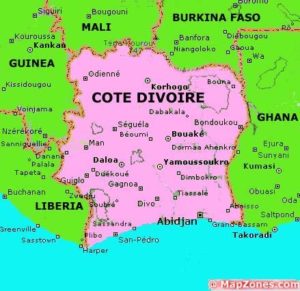 (pp 287-288 “Operation World” Prayer Guide)
(pp 287-288 “Operation World” Prayer Guide)
Unreached People in the North- The perception that Côte d’Ivoire is reached because of Christianity’s popularity and presence in the south is a false notion that delays the gospel reaching millions in the north.
The Mande and Malinke people clusters of the northwest. The Malinke especially are strong Muslim and mostly unreached.
The Gur people cluster of the north and northeast. Most practice African traditional religions.
Abidjan’s exploding population has doubled in the last 15 years to five million in the metropolitan area, making it the third-largest city in the Francophone world. It is the strategic key for the evangelization of Côte d’Ivoire, Mali, and Burkina Faso. All people groups of these latter two lands have a significant community in the city, but most are neglected by the church. Over 2.5 million Muslims, roughly half of the city, are scarcely touched with the gospel.
PRAYER: Father, forgive us of our idolatries and self-styled religion. We praise You for the revelation of righteousness in Your Word. We thank You for the written revelation that is so livingly embodied in Your Son who is the way, the truth, and the life of it. He has reconciled us to Yourself and provided our deliverance from the curse of sin and death. Give us Your eyes to see our neighbor as You see him. Give us Your heart to love our neighbor the way You love him. In Jesus’ Name. Amen.
Pastor David
So, naturally, we proclaim Christ! We warn everyone we meet, and we teach everyone we can, all that we know about him, so that, if possible, we may bring every man up to his full maturity in Christ. (Colossians 1:28, J.B. Phillips paraphrase)
New Life Community Church, Concord, MA 10742
www.newlife.org
